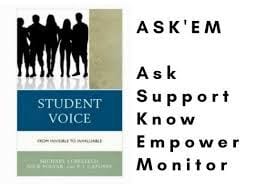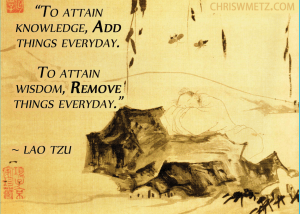To be accurate, it’s been a while since last I posted, December 23. It’s been a “full” few months in the district, and I had a bout of “writer’s block,” addressing and dealing with a host of challenges that “are what they are”. Thankfully with a powerful Board of Education, a Leadership Team that is world class, and about 500 teachers and educational support staff I would work with anywhere and any time, we are leading and learning in District 112 each day!
Periodically I integrate writing about “what a superintendent actually does” to leadership philosophy, to what’s really going on in the District; in this blog post, the spirit has again moved me to write, to share my thoughts, learnings, observations, and calls to action! Thanks for reading the post, as always, comments and questions are welcomed!!
March 2024 — Dr. Michael Fullan is one of my “edu heroes,” I have been learning from him for decades; I have been reading his work and making every effort to apply his findings to my leadership work. Recently, at a professional learning academy, I had the good fortune to re-read Nuance, Fullan’s 2019 book about “Why Some Leaders Succeed, and Others Fail,” I had the good fortune to attend a virtual live webinar session he led! For this blog post, I’m sharing some major takeaways and a call to action for all of us to find the “canary children”” and hear their voices, give them agency, and help change conditions so that they may find success.
From Nuance, on page 109 in chapter 5, Fullan shares an adaptation from Rebecca Wells, 2018 “Canary Child: A Catalyst for Deep Learning.”
“Canaries and students, it turns out, are not too dissimilar in how they show their distress. Canaries ruffle their feathers, hide their heads beneath their wings, and jump to other perches in their cage to try and escape unfavorable conditions. How many students, unable to follow the learning, falling behind, disinterested and disempowered, will also ruffle their feathers and create a scene, or hide away quietly, hoping not to be noticed?”
Perhaps you know about “canaries in the coal mine” — it can be a matter of life and death if a canary shows distress in the coal mine – it’s a sense of urgency for change in a coal mine if a canary shows distress. Why is it not always a call to action or a sense of urgency when our students are like canaries – in distress – calling out for help, illustrating a need for change or different approaches?
As Dr. Fullan passionately claims, Fullan believes this is our clarion call for action – NOW – for the betterment of our schools, communities, society, and even humanity.
So what do we do about this? How do we change? Will everyone jump to action and heed the call for urgency? An airline pilot strives for 100% perfection in terms of safe take-off and landing – they don’t accept a “C” (70%) or a “3” approaching standards … so why, in our “assessment obsessed” industry/profession – do we not actually change so that we can have greater success/competency/literacy/etc.?
The Canary Children essay deeply moved and impacted the academy’s leaders, central office, and principal-level leaders. We are all moved as we dive into and reflect on culture, student-centered equity, systems leadership, instruction, and change.
Often, we educational leaders show great aptitude and success in managing change – think about the pandemic … we managed change and responded to the crises associated with the pandemic. In some areas, we did see leaders who mastered change, whose leadership created conditions for lasting, adaptive change. However, most of our experiences, in general, reflected change management. Fullan highlighted the nuance and differences between change management and managing change.
Dr. Donna Leak, an Illinois superintendent and another presenter at the academy, called upon us to analyze and address the “Intentional Adult Behavior to Ensure Student Success.” Zandra Jo Galván, a California superintendent and another presenter at the academy, shared her district’s three guiding principles: culture, academics, and community. These exemplary leaders use their leadership and guiding principles to find and intervene for their canary children in their district. They are setting leadership conditions that align with Fullan’s global call for leadership and action. As a complement to Fullan’s talk, John Malloy, another amazing superintendent, shared that systems change is not only imperative but also possible. Malloy shares the following regarding what Systemic Commitments Have.
They have the following characteristics:
● Evidence-based
● Driven by data that sets the parameters for any collaborative work
● Coherent and focused, not simply another initiative
● Developed through a collaborative process
● Measurement systems are in place
● A monitoring process is determined
● Communication is ongoing
● Learning and improvement are supported through Effective protocols, practices, and processes.
● All students are served, especially those who need us the most.
So if we know that leaders are taking positive proactive and reactive steps to manage change and master change. Why are there still canary children, and what will you do about it in your school system? In our 2021 book, the Unfinished Leader: A School Leadership Framework for Growth & Development, Polyak, Caposey, and I lay out a six-lens frame to help create the conditions needed for each child every day and for each staff member every day.
We suggest that leading with the frames of equity and empathy, followed by adaptive leadership and the development of others (and yourself) with lenses and frames of communication and change – “don’t fear change, don’t let others hold you back, and don’t let others hold your organization back” define what it means to be unfinished — and this is related to and tied to the messages of Leak, Galván, Malloy and Fullan from this academy – and the messages complement the efforts we as systems leaders can use to find and treat the canaries!
In District 112, Highland Park & Highwood, IL, where I proudly serve as the superintendent of schools, we have canary children, and we won’t rest until we amend our conditions so that their voice and agency is acknowledged and heard and seen and addressed. I opened this year’s all-staff convocation with a clarion call of my own regarding the annual Student Engagement Survey. Annually, for the past six consecutive years, we administer the student engagement survey to all children in grades 3-8 in English and Spanish. Principals and their school leadership teams are required/expected to meet, review the data, and plan action steps with and for the students to make improvements. Our data is clear, coherent, and, in some ways, sobering. Until we master “satisfaction” and “engagement,” two of the dimensions that are reported in a 3×3 grid, we will know we have work to do. The students clearly communicate with us — we have pockets of extremely high satisfaction and engagement and low pockets. The difference in the results can be mapped back to systems leadership.
Leak, Galván, Malloy, and Fullan clearly illustrate in their workshop sessions that the critical ingredients in systems change and improvement lie in internal systems.
Dr. Malloy shared a compelling “why” for the impressive and impactful leadership in his school district right now — what are the employers of our students seeking? Our mission in public schooling is to prepare children for life, college, and career — do our assessment systems reflect life, college, and career? Should they? Can they?
Malloy shares a list from Linked In 2023 of the most “in demand” skills employers seek for our students — in what ways are your systems aligned with outcomes like these?
The 2023 Most In-Demand Skills
1. Management
2. Communication
3. Customer service
4. Leadership
5. Sales
6. Project management
7. Research
8. Analytical skills
9. Marketing
10. Teamwork
Fullan is a prolific student of leadership and success – his resume is impressive, and his books are real, with case studies illustrating success and meaningful work on behalf of and for humanity. I am moved, even at this late stage of my career, which invigorates me, quite frankly!
Fullan identifies the Six C’s – Global Competencies – In many districts, including mine, we see these in portraits of learners and graduates.
Like Nick Polyak and I write in the Unlearning Leader, Fullan calls for changing the structure of “factory schools” designed and imagined 200 years ago. Many systems are doing this. Galván removed “cemetery rows” of desks and replaced them with collaboration tables. There are many examples of this in the profession. Lead, take the courageous step to create conditions where the “grammar of schooling,” as Fullan says, can be rewritten.
In general and with a broad brush, the basic system of schooling can be defined loosely by,
Teacher Isolation, Individualism, Passive Students, Batching of students, lack of time, school isolation, system demands (current Systems) Obviously – there are exceptions to this – but the central tendency is as listed above and based upon Fullan’s (and my own) observations and experiences over decades of work in leadership.
So – how to change? One idea, proffered by Dr. Fullan himself, is to look at seven keys on one keychain, as he describes, that are elements of the new culture (that we can create to replace the old “grammar of schooling”. These are belongingness, global competencies, relationships (well-being), pedagogy (learning), world of work, leadership, and AI (artificial intelligence). Dr. Fullan passionately describes changing the primary driver of change from external (state/province) to internal (local system).
So, in closing, I write this blog as the spirit moves me after an inspiring leadership academy where some amazing leaders, in the field and in the know, caused me to think – and will continue to guide my work in creating conditions for each child every day with supports in place for each staff member!
At the core, we should all learn more about “Deep Learning” and the 6cs from our spirit coach, Dr. Michael Fullan!! As a refresher, the 6cs are:
Character & Compassion
Citizenship
Collaboration
Communication
Creativity
Critical Thinking
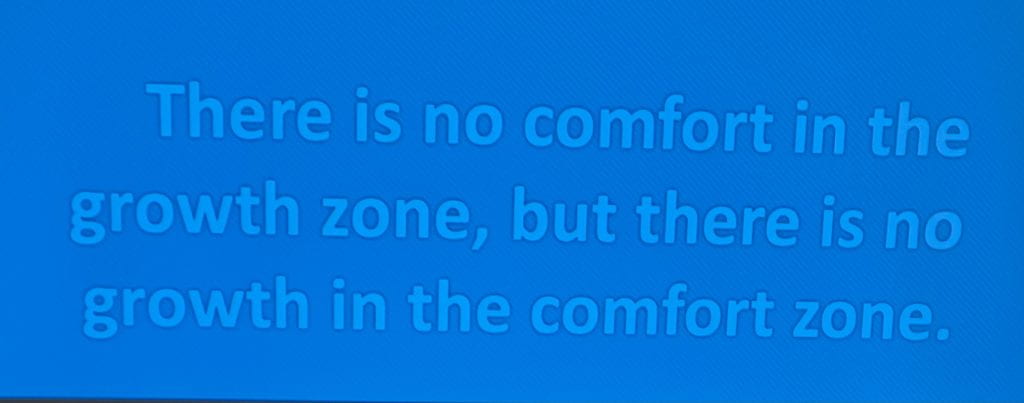
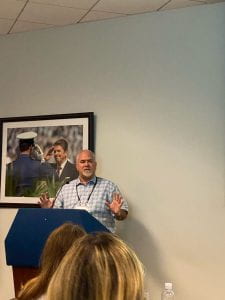

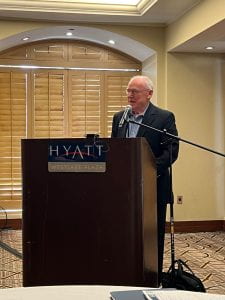
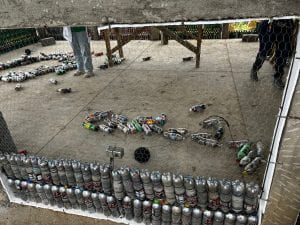
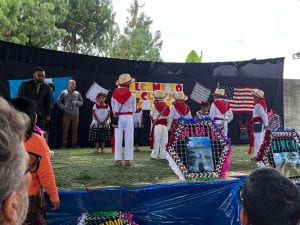
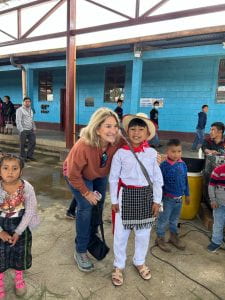
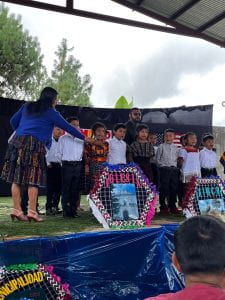



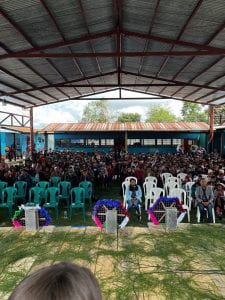
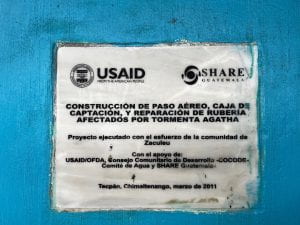
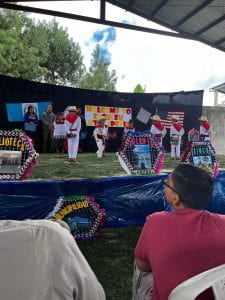
 I share the AI (artificial intelligence) response as an interesting “statement” as to what’s going on “technologically speaking.” I (or anyone) can enter a search query, and this new tool can generate a “Human-Like” chat with me about just about anything. So … I’ve been an educator before the internet, during its birth, before Google … and so on. In our 2017 book,
I share the AI (artificial intelligence) response as an interesting “statement” as to what’s going on “technologically speaking.” I (or anyone) can enter a search query, and this new tool can generate a “Human-Like” chat with me about just about anything. So … I’ve been an educator before the internet, during its birth, before Google … and so on. In our 2017 book, 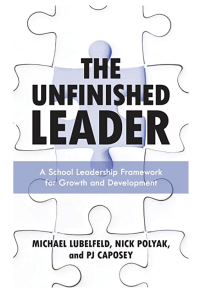 and the input of your affected stakeholders.
and the input of your affected stakeholders. 